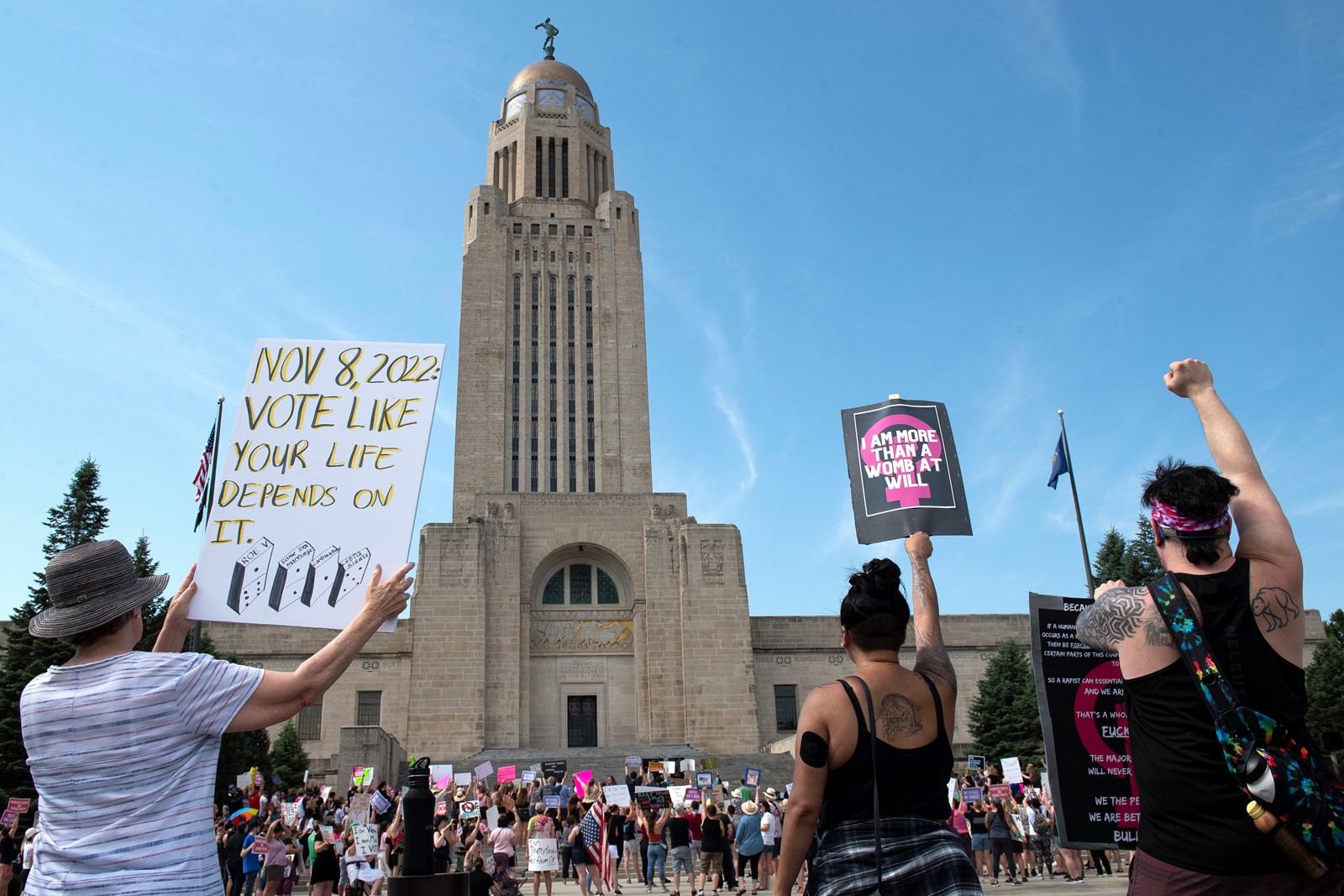
The Nebraska Supreme Court ruled Friday that competing measures that would expand or limit abortion rights can appear on the November ballot.
The high court’s ruling came days after it heard arguments in three lawsuits that sought to keep one or both of the competing abortion initiatives off the November ballot.
Organizers for each measure turned in more than 200,000 signatures, which was well over the 123,000 required valid ones needed to get them on the ballot.
An organizer for the measure to expand abortion rights called the decision a “victory for all Nebraskans.”
“Anti-abortion politicians forced an abortion ban into law and then coordinated with activists to launch desperate lawsuits to silence over 200,000 Nebraskans by preventing them from voting on what happens to their bodies,” said Allie Berry, campaign manager for Protect Our Rights. “They know Nebraskans want to end the harmful abortion ban and stop government overreach in their personal and private health care decisions. Today, their plans failed.”
Matt Heffron, an attorney with the conservative Thomas More Society, which challenged the measure to expand abortion rights, called the court’s ruling “deeply concerning” and said the group fears that if the measure passes, it would lead to unnecessary abortions in the second and third trimesters of pregnancy.
A report from the U.S. Centers for Disease Control and Prevention showed that in 2021, less than 1% of abortions occurred after 21 weeks of gestation.
One initiative would enshrine in the Nebraska Constitution the right to have an abortion until viability, or later to protect the health of the pregnant woman. The other would enshrine in the constitution Nebraska’s current 12-week abortion ban, passed by the Legislature in 2023, which includes exceptions for rape, incest and the life of the pregnant woman.
Two lawsuits — one brought by an Omaha resident and the other by a Nebraska neonatologist who both oppose abortion — argued that the measure seeking to expand abortion rights violates the state’s prohibition against addressing more than one subject in a bill or ballot proposal. They said the ballot measure deals with abortion rights until viability, abortion rights after viability to protect a woman’s health, and whether the state should be allowed to regulate abortion, amounting to three separate issues.
“The fact that the drafters of the Initiative have made certain choices regarding the specific limits, parameters, and definitions does not mean that each such provision is a separate subject,” Justice Lindsey Miller-Lerman wrote for the court in its unanimous decision.
A similar single-subject argument on an abortion rights ballot measure before the conservative Florida Supreme Court failed earlier this year — a development cited in the Nebraska decision.
“We note that our decision in this case aligns with a decision of the Florida Supreme Court issued earlier this year,” Friday’s opinion reads.
A third lawsuit challenged the 12-week ban ballot measure.
It argued that if the high court found that the abortion rights measure fails the single-subject test, it also had to find that the 12-week ban initiative failed it. The abortion restriction measure would loop in at least six separate subjects — from regulating abortion to listing exceptions for rape, incest and the life of the mother, an attorney for that third lawsuit argued.
In Nebraska, voters could end up approving both competing abortion ballot measures.


 PREVIOUS ARTICLE
PREVIOUS ARTICLE
